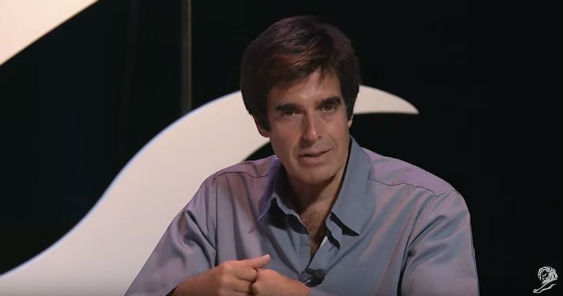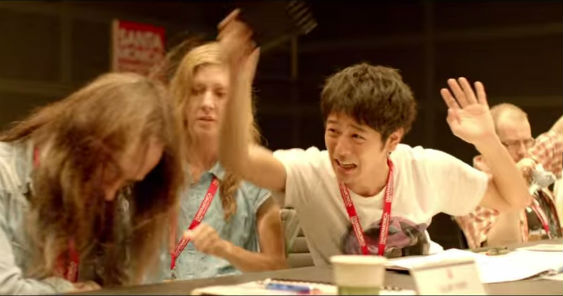SINGAPORE – September 18, 2013 – Building up to the awards night later that evening, Day 3 of the seminars at Spikes Asia 2013 was all about possibilities and opportunities.
Direct and Promo & Activation Jury President, Chairman of Lowe SSP3 and President of Lowe Worldwide’s Creative Council Jose Miguel Sokoloff gave the day’s first seminar on “Transformation: The Lifeblood of our Industry.” Sokoloff shared how Lowe’s campaign to demobilize guerillas appealed to them, not as soldiers, but as humans. A Christmas tree installation in the jungle where these guerillas camped would light up at the slightest movement, revealing the message: “If Christmas can come to the jungle, you can come home.” It didn’t stop there. Recognizing that ex-guerillas needed support to reenter society, the second wave helped them secure jobs and become productive members of the community.
Stressing how companies must go beyond traditional CSR, PR Jury President and FleishmanHillard APAC President & Senior Lynne Anne Davis spoke on “Our Power to Change the World.” She said expectations have evolved rapidly: 66 percent of customers buy from companies that give back. To encourage PR-driven thinking that’s transformational and persuasive (but not the sole domain of PR firms), she noted that brands delivering a human benefit profited more than those who didn’t. She quoted Yvon Choinard, owner of clothing and gear brand Patagonia, “Every time I have made a decision that is best for the planet, I have made money.”
Next up was Tham Khai Meng, Ogilvy Worldwide Chief Creative Officer and Jury President for Film, Print, Outdoor and Radio, who said all creativity should be transformational. He suggested the Trojan Horse approach, using subtlety to smuggle the brand message into customers’ hearts. He added, “The brain is a wonderful bag of tricks, but not the only game. The effect is always lasting if you can touch the heart.”
Craft Jury President and JWT’s APA Creative Council Chairman Lo Sheung Yan discussed “Craft: The Art of Make Belief.” He stressed how a skilled and dedicated craftsman can make even the wildest idea seem tangible and real. From casting credible talents to refining each stage of execution, craftsmanship can captivate the audience and make them believe. Despite popular belief, a low budget doesn’t have to mean low craftsmanship. After all, technology is also enhancing craft, helping to make creative visions come to life.
Media Jury President and PHD Worldwide CEO Mike Cooper talked on “10 Ways to Challenge a Market: Lessons from a New Generation of Challengers.” There is more to the challenger than just the little player contending with the bigger one. The challenger could be the missionary, the people’s champion, the irreverent maverick, the democratizer, the game changer, the visionary, the real and human challenger, the next generation, the enlightened zagger or the feisty underdog. It’s important for a company to determine and understand its challenger narrative.
“Content is one thing, but context is king,” said Digital Head of TBWA’s Digital Arts Network Singapore Tuomas Peltoniemi and Adobe Global Partner Manager Nicholas Smith. They explained that data allows brands to be culturally relevant. Despite creatives’ aversion to data, Peltoniemi and Smith said, “The more you know about the people you talk to, the more cultural insights you have, the more creative you can be.” However, historically, data and insights are only done in the very first and last stages of a campaign. Smith urged, “Look at data every month, every week, on the hour.”
In one of the day’s most animated presentations, Hakuhodo Inc ECD Morihiko Hasebe and Hakuhodo Kettle Co-CEO and ECD Kentaro Kimura explored “Ad agencies’ new potential.” First, they explained why many Japanese agencies have thousands of employees: they go beyond the usual jobs. Some divisions focus on non-trad projects, e.g. designing a business hotel that offers the ultimate sleep. In pushing the boundaries of business, the two advised: Do what you desire, enjoy change, and try the undone.
With a voice that belongs in blockbuster movie trailers – Tony Hertz, Owner of Hertz Radio & Brand Sound discussed how to “Make more waves: The neglected element of brand communication.” Stressing the importance of sound, he said, “We can close our eyes, we cannot close our ears.” Ironically, in Marcomms, audio doesn’t get much attention and care, while visuals are usually overly thought out and executed. What’s more, radio accounts for only 5.5% of all Spikes entries – clearly a can’t miss opportunity for those who want to bag a Spikes next year.
In “Digital Visions: How Google’s Big Ideas inspire everyday thinking,” Google’s Head of Creative Labs in APAC Tom Uglow shared some of the company’s crazy ideas. While bordering on science fiction, these projects address real issues, e.g. Google Glass, designed so that hardware doesn’t get in one’s way while reading email or take photos… the self-driving car that sees more than the human eye, thereby preventing accidents, etc. Uglow concluded with a challenge: “There is no shortage of problems for you to solve. Go out there, make a difference in the world.”
McCann Melbourne ECD John Mescall, famous for the viral hit “Dumb Ways to Die,” explained how to be “Agents for Change.” With the advent of the Internet and other forms of new tech, he said, “The world forced us to change as an industry. Now, it’s our turn to change the world.” We are now more powerful than ever, we have tools at our disposal. However, there’s no place for ego. Cleverness must take a backseat to authenticity and desire to change things. While we set aside ego, it will eventually have its rewards. Mescall said, ”The work that gets more awards is making real world creative impact.” And hopefully, vice versa.
For the festival’s final seminar, Ogilvy’s Global MD Fergus Hay introduced special guest and three-time Formula One global champion Sir Jackie Stewart. A charmer and a natural comedian, Sir Jackie shared some surprising facts about himself that amazed, amused, and inspired the audience: 1. Dyslexic, he can’t read or write – yet he went on to become an F1 champ three times over. 2. Before motor racing, he was already a prizewinning member of the Scottish shooting team. He said he gave up shooting to get married but “his wife was expensive,” so he had no choice but get into racing. (Just the same, he and his wife have been married 51 years.) 3. While motor racing seems more challenging, he said, “As a shooting man, when you lose a target, you never get it back. A racing driver can make small mistakes but still come back.” 4. About WPP Group CEO Sir Martin Sorrell: “Martin Sorrell’s first job was carrying my bags. I made Martin Sorell!”
Of course, Sir Jackie shared more nuggets of wisdom, e.g. To finish first, first you must finish. Underpromise and overdeliver… and more. In fact, the audience would have been happy to just keep on listening. But it was time to rush for the Awards Ceremony at Marina Bay Sands.
The majority of the evening’s winners was truly impressive. Many exemplified the positive change the day’s speakers advocated. A good number also seemed simple, produced with realistic budgets – inspiring the audience with possibilities for next year’s Spikes Awards Night.
The evening’s biggest winner, McCann Melbourne’s “Dumb Ways to Die” came as no surprise. Ogilvy’s Tham Khai Meng paid this multiple Grand Prix winner the ultimate compliment, “Everyone in this room wishes he could have done that.”
Shortly after, everyone proceeded to the After Awards party sponsored by Leo Burnett at Avalon. While drinking and partying, perhaps many were already thinking of entries for next year’s awards.
See the list of the Spikes Asia 2013 winners at the adobo magazine Spikes Asia 2013 microsite.




